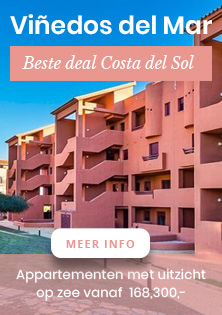
Legal aspects of buying a new-build property in Spain
Buying a property in Spain involves a lot of legal matters. For this you will get help from a legal office, which makes living and moving to Spain a lot easier. Your estate agent is of course always ready to answer all your questions, but a lawyer is also essential. They will guide you through the entire purchase process.
What must all be done?
Before the start of the construction
When you have bought a new house, your lawyer will first contact the project developer. All the necessary documents relating to your property are requested from them, including the building permit. If it is not yet available, your lawyer will check with the town planning department to see if it is available, so that he can check with the mortgage office whether the land is free of debts. In addition, your lawyer will explain the reservation document, after which the reservation sum is transferred to the selling party. The plans of the house and the list of materials are also requested, but beware, a specification book as in the Netherlands does not exist in Spain.
Of course, you must also be able to submit a number of documents yourself. Your lawyer will guide you in collecting your tax information so that you comply with the anti-money laundering legislation. The promoter must have a clear view of where your money for the purchase came from and this must all be proven with the right documents.
Then the lawyer will request the private purchase contract for you, which was drawn up by the promoter, and any amendments are requested. Next, the lawyer will explain the purchase contract so that you have a clear idea of what it entails, such as your rights and obligations as a buyer.
During the construction
During the construction of your house, you can count on your lawyer for the follow-up of any interim payments. When construction can begin, your lawyer will follow up the town planning file to obtain the license for first occupation. When the deed has to be signed, you can also count on the legal assistance of your lawyer. He or she will give a brief oral explanation of the deed, so that you are well informed of its contents.
In Spain you must have a NIE number (Número de Identificación para Extranjeros), which is the Spanish tax number that every non-resident with a home in Spain must have. Sometimes you may already need this number when signing the private purchase contract. If this was not necessary and you still need a NIE number on the day of the deed, your lawyer can apply for it for you through a notarised administrative power of attorney.
After the sale
You can also count on your team of lawyers after the sale. They will take care of the contracts of the supply companies, such as electricity, water, telephone, etc. However, it is important to know that it can take three to four weeks after you have bought the property for the utilities to work, as this is the legal deadline the companies have to arrange the connection. Finally, your lawyer will also report the transfer of the property to the municipality and the taxes of the cadastral income and rubbish will be filed.
Married?
You must also provide information about your marital status: if you are married, information about the matrimonial property regime is very important. Did you conclude a marriage contract and under which matrimonial regime? Are you married under the regime of ‘separation of assets’? If you want to buy the property on your own, you will need to provide a copy of your partner’s identity card and a certified copy of the marriage contract.
Insurance
When you have bought a property, you also have to take out insurance. This includes both the building itself and its contents. Please note that in Spain, the kitchen must also be included in the contents insurance.
Taxes
Annual personal taxes
When you buy a property in Spain as a non-resident, you have to pay annual income taxes to the government. This amount is between 1.1% and 2% x 19% of the cadastral income and has to be paid before the end of December. You will also have to pay the lawyer’s fees for preparing the tax return, presenting it and paying it. For one person this amounts to €150, for two persons or more it is €100 per person.
Annual municipal taxes
The cadastral income, also called Impuesto sobre Bienes Inmuebles (IBI), is paid on an annual basis. This is usually between 0.4% and 0.9% on the cadastral value of the property, but these percentages vary from one municipality to another.
You also have to pay the annual rubbish tax, which also varies from one municipality to another. On average, this will be around €200 per year.
Testament
A useful tip is to already draw up a Spanish testament when you have a home in Spain, this is not obligatory but can save a lot of hassle later on. It will avoid a lot of administrative work, delays and additional problems. For such a testament you will have to pay about €400 in total, including VAT, costs and fees of the notary.
Renting out your property
If you want to rent out your property in Spain, you will need to have a rental licence. Your property will be considered as a home for tourist use, situated in a residential zone. This is specifically about properties that are offered through tourist channels like booking.com, travel agencies, etc.
Income tax
Being the owner of a property in Spain as a non-resident, entails a number of tax obligations. For example, you have to submit an annual tax return in Spain concerning the income received. The amount of tax depends on whether you rent out your property or not. If you do not rent it out, a tax will be charged on the fiscal value of the property, and this tax amounts to 19% of the fictitious rental value. If you do rent out the property, a 19% tax is charged on the actual rental income. This income must be declared every quarter.
Finally, there are a number of deductible items in the tax return:
- Cadastral income
- Rubbish tax
- Insurance
- Community (annual)
- Possible interest on a Spanish loan
- Commission intermediary (Agency)
- Works and furniture invoices (at 10 years)
- Utility bills
After deducting these items, you will know the exact amount of tax you will have to pay per quarter.
The help of your real estate agent and lawyer
This is just a selection of everything your lawyers can do for you. Do you have any other questions? Then be sure to contact your estate agent in Spain, who will certainly be able to guide you further in this regard.
–
In our blog you can read much more about living in the south of Spain. Be sure to check out our other blogs for great tips and handy facts about the Costa del Sol!



















